university of the philippines college of mass communication student pepe diokno wins 2 prizes @ venice film festival
pepe is the son of UP creative writing professor divina diokno, nephew of UP history professor and former vice president for academic affairs maria serena diokno, and grandson of filipino nationalist and senator jose w. diokno.
66th Venice Film Festival
Venice Biennale
12 September 2009
Official Awards
The 66th Venice International Film Festival ran 2nd to 12th September 2009.
The International Juries awarded the following prizes:
Venezia 66
- Golden Lion for best film: Lebanon by Samuel MAOZ (Israel, France, Germany)
- Silver Lion for best director: Shirin NESHAT for the film Zanan Bedone Mardan (Women Without Men) (Germany, Austria, France)
- Special Jury Prize: Soul Kitchen by Fatih AKIN (Germany)
- Coppa Volpi for Best Actor: Colin FIRTH in the film A Single Man by Tom FORD (USA)
- Coppa Volpi for Best Actress: Ksenia RAPPOPORT in the film La doppia ora by Giuseppe CAPOTONDI (Italy)
- “Marcello Mastroianni” Award for Best New Young Actor or Actress: Jasmine TRINCAin the film Il grande sogno by Michele PLACIDO (Italy)
- "Osella" for Best Technical Contribution: Sylvie OLIVÉ for the film Mr. Nobody by Jaco VAN DORMAEL (France)
- "Osella" for Best Screenplay: Todd SOLONDZ for the film Life during Wartime by Todd SOLONDZ (USA)
Orizzonti
- Orizzonti Prize to Engkwentro by Pepe Diokno (Philippines)
- Orizzonti Prize for Best documentary to 1428 by DU Haibin (China)
- Special Mention to Aadmi ki aurat aur anya kahaniya (The Man’s Woman and Other Stories) by Amit Dutta (India)
Controcampo Italiano
Controcampo Italiano Prize to: Cosmonauta by Susanna NICCHIARELLI (Italy)
Kodak will offer to the awarded director 40,000 euros in negative film stock - 35 or 16mm, chosen by the winner - to shoot a new feature film.
- Special Mention: Negli occhi by Daniele ANZELLOTTI and Francesco DEL GROSSO (Italy)
Corto Cortissimo (Prizes awarded on 10th September 2009)
- Corto Cortissimo Lion for Best Short Film to Eersgeborene (First Born) by Etienne Kallos (South Africa, USA)
- Venice Nomination to the European Film Awards 2009 to Sinner by Meni Philip (Israel)
- Special Mention to Felicità by Salomé Aleksi (Georgia)
“Luigi De Laurentiis” Award for a Debut Film
- Lion of the Future – “Luigi De Laurentiis” Venice Award for a Debut Film to Engkwentro by Pepe DIOKNO (Philippines) - ORIZZONTI
as well as a prize of 100,000 USD, donated by Filmauro, to be divided equally between director and producer
Persol 3-D Award for the Best 3-D Stereoscopic Film of the Year (Prize awarded on 11th September 2009)
- Persol 3-D Award: The Hole by Joe Dante (USA)
‘Engkwentro’ bags Venice filmfest prize MANILA, Philippines -- Filipino filmmaker Pepe Diokno’s “Engkwentro” won the top prize in the Orizzonti (New Horizons) section of the 66th Venice International Film Festival.
Diokno, who received the award in the Italian city, confirmed his triumph in a text message to the Inquirer Sunday morning.
He competed with 24 other films from Vietnam, Egypt, Peru, Russia, Tunisia, Italy, China, Germany and the United States, among others.
In 2008, another Filipino filmmaker, Lav Diaz, won the top prize for “Melancholia" in Orizzonti as well.
Apart from the top prize in the section earmarked for “new trends in cinema,” Diokno also won the Luigi De Laurentiis Lion of the Future award, which comes with a cash prize of US$100,000.
The award is given to a debuting filmmaker and the cash prize, donated by distributor Filmauro, is to be divided between the director and the producer, according to the web site of the world’s oldest festival.
Screen Daily.com reported that jury president, director Haile Gerima, presented the Lion of the Future award to Diokno.
According to the Venice fest web site, the jury “unanimously decided” to give the award to Diokno.
Another Filipino film, Brillante Mendoza’s “Lola,” competed in the festival’s main section. Although “Lola” failed to bring home a prize, it merited “good reviews from critics,” co-producer Ferdy Lapus said in a text message.
In an interview held before his trip to Italy, Diokno told the Inquirer that being selected for the Orizzonti was “overwhelming in itself.”
“Programmer Paolo Bertolin told me that I am one of the youngest filmmakers to join the Orizzonti,” Diokno said.
“Engkwentro” earlier won a special mention prize in this year’s Cinemalaya digital film festival. It’s his first film.
Laurice Guillen, competition director of Cinemalaya, said “Engkwentro” won a special prize “to cite Pepe’s achievement at such a young age.” Diokno turned 22 last Aug. 13.
His father, Jose Manuel Diokno, told the Inquirer: “We’re ecstatic. Pepe texted and he’s very glad. He was surprised . . . if not equally shocked as we are. His only objective before he left for Europe was to meet filmmakers, watch movies and hopefully get support for his next film. This is unexpected.”
“I am very happy for Pepe,” Guillen said. “ ‘Engkwentro’ elicited very mixed reactions when it was shown at the Cinemalaya in July. But I felt it was precisely this kind of film that gives Cinemalaya its credibility. Films like ‘Engkwentro’ push its definitions further. It is in the realm of documentary, but it’s a feature film.”
Ed Cabagnot, Cinemalaya festival programmer, remarked: “It’s simply amazing. Pepe was this year’s ‘bad boy.’ He had all sorts of problems while making the film. But we were secretly rooting for him because we knew his passion will see him through. We need films that are out of the box.”
Diokno explained that his debut film was “set against the backdrop of vigilante killings in the country, a problem investigated by the United Nations and the Philippine Commission on Human Rights.”
“Engkwentro” tells the story of two teenage brothers, Richard (Felix Roco) and Raymond (Daniel Medrana), who find themselves on opposite sides of a gang war. Complications arise when one is tasked to kill the other.
Diokno asserted that “Engkwentro” is not just about the “death squads of Davao City.” “It’s not set in a specific city. It’s a national problem. That’s why the characters speak in Tagalog, Cebuano, Ilonggo and Pangasinense, to create an unnamed hybrid city.”
The young filmmaker, who’s the grandson of the late senator and human rights advocate Jose Diokno, conceded that he found inspiration for the film while doing a documentary in a Davao-based detention facility in 2007. “I met two brothers, Richard and Raymond, members of rival gangs that are being hunted down by vigilante squads.”
In the last decade, he said, “over 814 people have been murdered by assassins allegedly sponsored by the state. Reports say many of the victims are minors –including gang members, petty criminals and street children.”
He said being in Venice made the hardships he had experienced during the shoot worthwhile.
His father said: “Pepe worked hard to finish this movie. He gave his all to this film.”
The young filmmaker acknowledged that it “was a complicated, challenging shoot. We had to build a set: a 2,000 square-meter squatter’s area in Sta. Ana, near Makati. We had some 500 extras in the film. We had to rehearse a lot.”
He corrected the impression that the 61-minute film was done with one long take. “Actually, there were 51 cuts, but we had to digitally erase the cuts and make it look seamless. We wanted to make it appear continuous, as if it was one long tracking shot.”
In reality, the film was shot in three months in three different cities.
“The sound design was recreated entirely in post-production,” recalled Diokno. Sound designer Mark Laccay “built the film’s audioscape from the ground up.”
Before leaving for Venice, he said that his biggest goal was to meet his idols: documentarian Michael Moore, filmmaker Steven Soderbergh and animator John Lasseter who were all participating in the Italian festival.
“It’s exciting to be part of the Venice film fest—especially in a section that highlights new trends in filmmaking,” he said. “I want to see how the other directors treated their films. I’m curious as to how foreign audiences would respond to my film.”
He owned up that his film drew mixed feedback from local audiences. “It sparked strong reactions. It’s either they liked or hated it for various reasons. I think it’s because of the film’s style.”
But that’s precisely his goal, he said.
“We are trying to provoke discussion. All reactions, whether good or bad, are welcome—for as long as it contributes to a healthy debate,” he noted.
Guillen pointed out: “It is [an audience] in cultures like the Italians’, which excelled in filmmaking in the 1950s, that will appreciate ‘Engkwentro.’ They are very familiar with art films. To see a film like ‘Engkwentro,’ which tells its story confidently, but with irreverence to art . . . that, I suppose, is what challenges them.”
Labels: engkwentro, pepe diokno, venice film festival








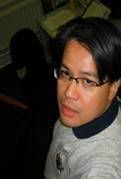







































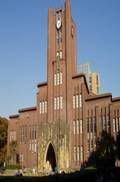












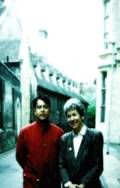

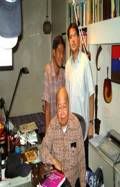








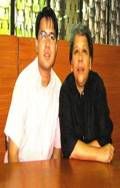
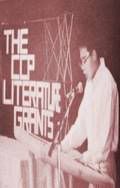


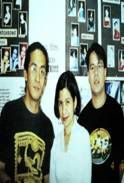


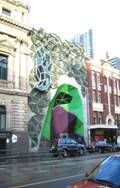

















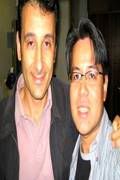

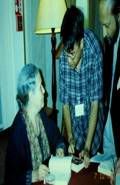
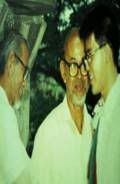
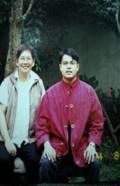




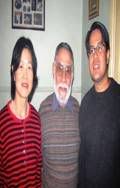
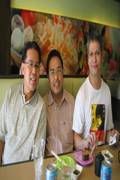
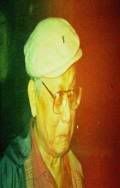
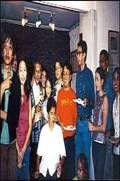
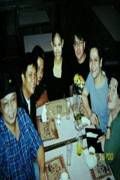

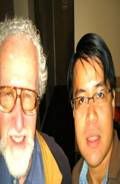


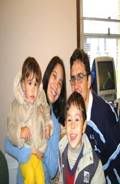
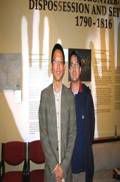


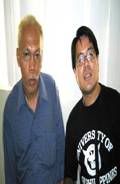

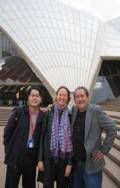
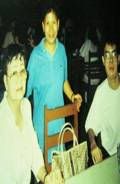

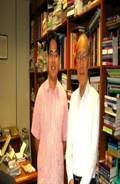
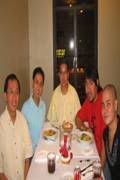
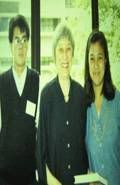







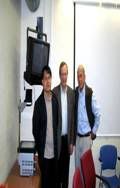


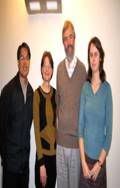
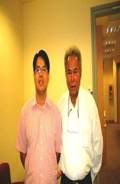

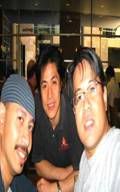
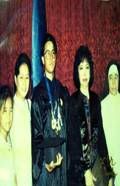
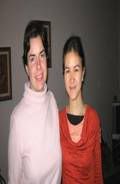

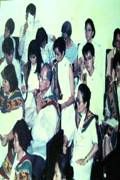

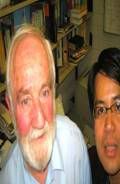
















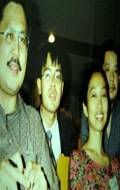


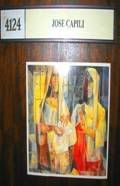

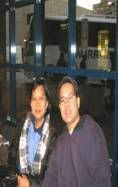

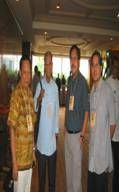
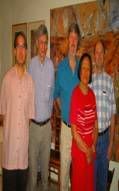
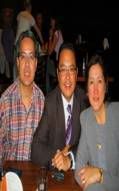


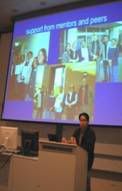
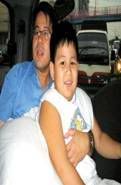
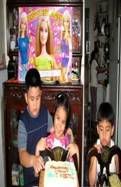
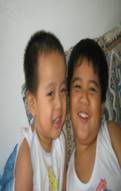




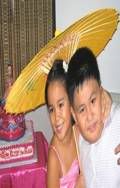
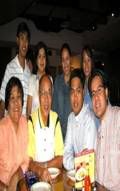








0 Comments:
Post a Comment
<< Home